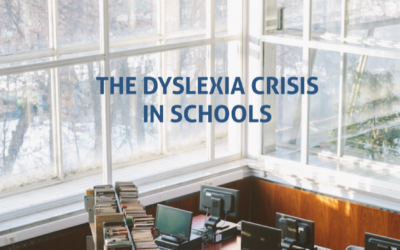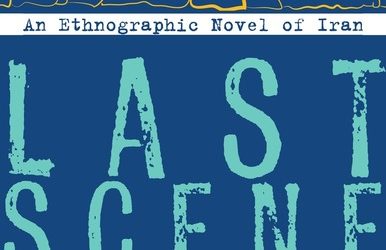When Dan Pink wrote his book about the world needing more skills of the Conceptual Age, many in the dyslexia community couldn’t help but notice that his list looked a lot like common lists of dyslexic strengths: – Artistry – Inventiveness – Big-picture thinking – Pattern recognition – Empathy The implications for education and careers were straightforward. The goals of education and satisfying work should not be mere mastery of information, but a mastery of concepts that could be used flexibly to solve problems and create things that are new. Pink is not a neuroscientist; he is a popular author and observer of trends. Where are we now in our understanding of “dyslexic thinking”? There are many interesting lines of thought coming together these […]
Dyslexia and Dysgraphia: What Does Writing Look Like? [Premium]
What does the writing look like in students with dyslexia and dysgraphia? IMPAIRED AUTOMATICITY, CAPITAL LETTER INTRUSIONS, and SPELLING ERRORS Students who struggle with handwriting automaticity show irregular shapes and sizes of letters. For example, look at the letter ‘e’ in the spelling test at right. They are very different from one another, showing that the student has not ‘automated’ writing of the letter ‘e’. The more variable the letters are, the more arduous to write anything by hand. Working memory is easily overloaded, and students may be exhausted after writing a few words. The spelling test also shows capital letter intrusions (capital ‘D’), likely to avoid confusing lower case ‘d’ with ‘b’, irregular spacing, and phonological as well as sight word errors. When […]
Foreign Language Learning [Premium]
Q: HOW CAN I IMPROVE MY FLUENCY WITH A SECOND LANGUAGE? Recently, a member of this community asked about how to improve his fluency with a foreign language. He mentioned that he’d been trying to learn for the past 30 years, but only recently started making more progress with the app Yabla because it was visual and didn’t rely on audio alone. Yabla is an interactive video approach to foreign language learning that provides two channels of captions that can be shown or hidden and TV shows, music videos, documentaries, and interviews. A: I can see how Yabla can help with improving speed of listening. The videos provide context and the scenes may make the dialogues more memorable than if they were read […]
The Dyslexia Crisis in Schools
The house is on fire. There is a conflagration of factors coming together that are affecting dyslexic students in public school beyond COVID. COVID certainly has its share of blame and breaking the camel's back when it comes to providing essential services to...
Singer Tony Bennett’s Last Concert
"To me, life is a gift, and it's a blessing to just be alive. And each person should learn what a gift it is to be alive no matter how tough things get." — Tony Bennett Tony Bennett really sounds great at 95 years old. Check out his duets with Lady Gaga below....
Dr Roxanne Varzi: Creative Anthropologist
I recently had the chance to talk to Dr Roxanne Varzi, a writer, anthropologist, and filmmaker who was also the first Fulbright Awardee since the Islamic Revolution for research in Iran. She's doing such interesting work that is creative on many levels that I...
Supporting Young Dyslexics during the Pandemic
With all the continued upheaval due the pandemic, here's some advice for trying to keep the big picture of the coming school year. DYSLEXIC DEVELOPMENT HAS ITS OWN TIME TABLE There can be a very late bloom for a lot of the younger years for dyslexics - so don't...
Wellbeing: Managing Uncertainty
This pandemic is battle of endurance - for mind as well as body. There is nothing that is certain...except for uncertainty. For many of us that includes what work, education, or free time will look like. As dreadful as all that seems, I do know that some members of...
Princess Beatrice: The Gift of Dyslexia
"Even referring to it as a diagnosis, I feel, does a disservice to the brilliance of some of the most fantastic minds that we have... just shifting the narrative a little bit towards something that is positive, something that is impactful, can really help everyone." -...
How to Keep Writing During the Pandemic [Premium]
Despite all of the mechanical and logistical challenges of writing for dyslexics, there are many for whom writing is a strength. What makes good writing? So many things, but keen powers of observation, a good sense of humor, insight, feeling, these are all things that make good stories and storytelling. For some kids and adults, keeping a pandemic journal is therapeutic. It’s not limited to text. COVID comics anyone? Historians or watchers of Antiques Roadshow may recall how interesting pandemic or war time journals of the past were to transporting them into all the places and times of crises. Smithsonian has a post about the 1918 influenza diaries for those who might want to get some historical context on our present. Some people […]
White Noise Improves Reading Skills and Memory in Reading Disabilities [Premium]
Some of you may remember research in the past that showed that individuals with dyslexia have more difficulty screening out background noise (discussed in the news HERE). Students or adults with this difficulty can usually request quiet area for work or test-taking under the ADA or Americans for Disabilities Act. Now another research group has tested the effect of “white noise” on reading skills and memory recall in children with a reading disability. From the paper: “The study was conducted with a group of 30 children with RD and phonological decoding difficulties and two comparison groups: one consisting of skilled readers (n = 22) and another of children with mild orthographic reading problems and age adequate phonological decoding (n = 30). White noise […]
What Kind of Dysgraphia [Premium]
A recent clinical review of dysgraphia has defined dysgraphia in the following way: “At its broadest definition, dysgraphia is a disorder of writing ability at any stage, including problems with letter formation/legibility, letter spacing, spelling, fine motor coordination, rate of writing, grammar, and composition.” Developmental dysgraphia (i.e. dysgraphia not based on some known injury) is described in the same article as having a “difficulty in acquiring writing skills despite sufficient learning opportunity and cognitive potential.” When a teacher or other professional asks a parent about “what type of dysgraphia their student might have,” they may be referring to the so-called “5 Types of Dysgraphia”, that often include, “motor”, “dyslexic”, “spatial”, and so on – but these distinctions are rarely clear-cut in real life and […]

![Dyslexia and Mapping Out the Mind [Premium]](https://www.dyslexicadvantage.org/wp-content/uploads/2021/10/Dyslexia-and-Mapping-out-the-Dyslexic-Mind-1-400x250.png)
![Dyslexia and Dysgraphia: What Does Writing Look Like? [Premium]](https://www.dyslexicadvantage.org/wp-content/uploads/2021/10/Dyslexia-and-Dysgraphia-4-400x250.png)
![Foreign Language Learning [Premium]](https://www.dyslexicadvantage.org/wp-content/uploads/2021/10/Foreign-Languages-400x250.png)






![How to Keep Writing During the Pandemic [Premium]](https://www.dyslexicadvantage.org/wp-content/uploads/2021/09/keep-writing-400x250.jpg)
![White Noise Improves Reading Skills and Memory in Reading Disabilities [Premium]](https://www.dyslexicadvantage.org/wp-content/uploads/2021/09/White-noise-2-400x250.jpg)
![What Kind of Dysgraphia [Premium]](https://www.dyslexicadvantage.org/wp-content/uploads/2021/09/What-kind-of-dysgraphia-2-400x250.jpg)













